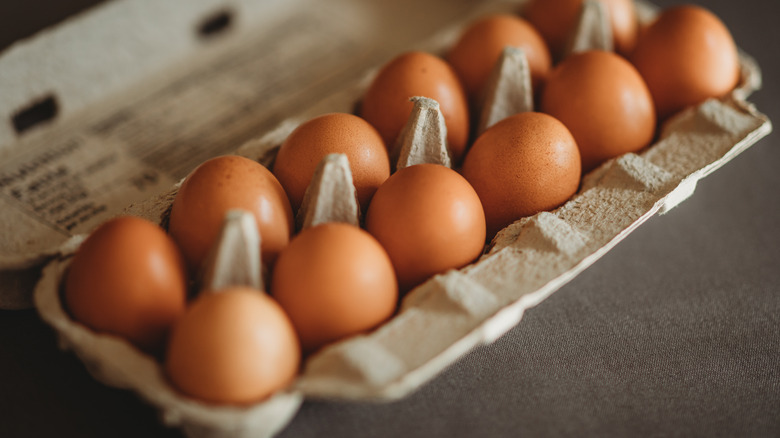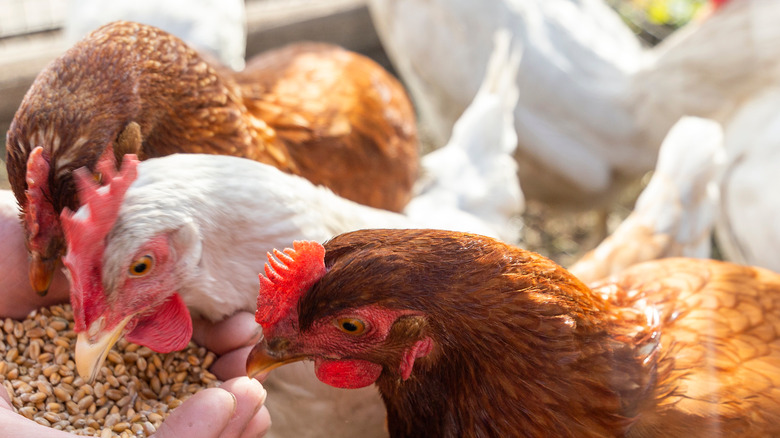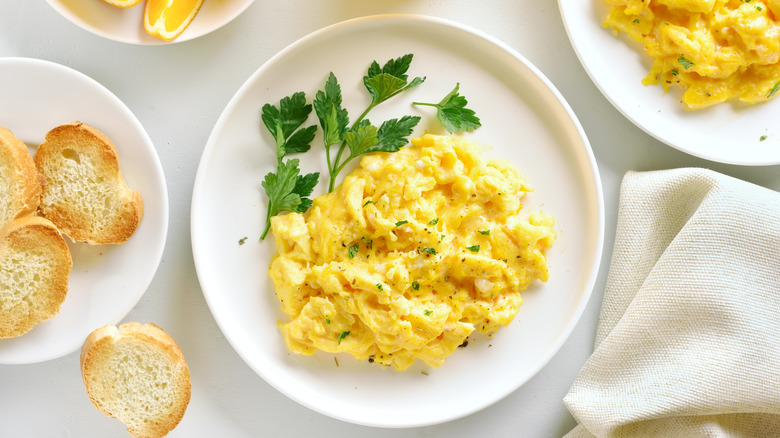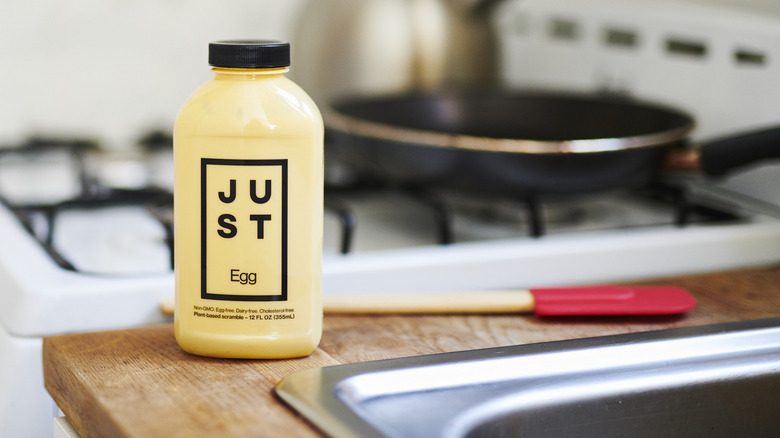The Truth About Plant-Based Eggs
There has long been a debate about the health benefits of eggs. BBC reports that eggs' high cholesterol content has put them in the "bad for you" category and makes those who eat them more susceptible to heart attacks. On the other end of the spectrum, eggs are very low in saturated fat, high in protein, and nutrient-dense. To add to the confusion, some organizations such as The American Heart Association have a two-sided perspective on the pros and cons, noting that while they are low in calories and rich in vitamins, their cholesterol level means that consumption should be monitored to prevent heart issues.
What if there were an egg alternative that may be better for you? That may not spur so many questions about cholesterol and heart health? While it may seem like the spotlight is only on plant-based meats, a newer trend is taking shape in the form of vegan eggs. Here's the scoop.
Why there may be a need for egg alternatives
While not all experts agree on the link between dietary cholesterol in eggs and overall heart health, there is a general consensus they should be eaten in moderation and replaced with plant proteins when possible, says the Harvard School of Public Health. As Healthline shares, there's no need to stress about this issue when it comes to vegan eggs, which are cholesterol-free.
Scientists also point out the environmental benefits of eating plant-based eggs instead of regular ones. Even free-range hens produce greenhouse gases that contribute to climate change, which is why some people choose to lower their environmental footprint by eating plant-based foods (via Fractals). Additionally, egg production relies greatly on cereals and soy, which are also associated with high emissions, according to PubMed. On top of that, egg production is often a source of animal welfare concerns. Animal Equality describes cramped living spaces for egg-laying hens and states that many are mutilated due to stressful facility conditions.
How are vegan eggs made and what do they taste like?
Vegan eggs are typically made with a combination of plant-based ingredients that imitate chicken eggs' flavor and behavior — as in, their ability to scramble over heat or act as a binder in batters and other foods. While ingredients vary among producers, Live Kindly says that recipes can include anything from mung beans to "a combination of soymilk powder, modified cellulose, and natural flavors, including nutritional yeast and black salt," the latter of which is used for its eggy, sulfurous odor.
As for how they compare to the real thing, The San Diego Union-Tribune conducted a taste test of Just Egg's pourable eggs and egg bites and noted "no difference in taste or texture" from chicken eggs The outlet reported that the plant-based products were just as much of a hit among staff carnivores as vegans. Tasters at Thrillist approved of the spot-on smell and flavor offered by the mung beans, but found the texture to be a little off, describing it as "gritty in some bites, stringy in others."
Popular brands of plant-based eggs
There are a variety of plant-based egg brands out there, but possibly none more popular than Just Egg. This plant-based egg substitute gets its flavor from mung beans and yellow color from turmeric, according to the company website. Just Egg came on the scene in 2019, reports Veg News, and just one year later came out with an updated, even eggier version. In a little over one year, the brand upped its retail presence by 40% and appeared on shelves at Kroger, Walmart, and Mariano's.
Crackd is the UK's response to Just Egg. Made with all-natural pea protein, Crackd's website claims to be for people "who can't, don't, or won't eat eggs." Other popular options include Zero Egg (available as a frozen liquid or powder), Simply Eggless (a bottled liquid), and Follow Your Heart's powdered VeganEgg. And it doesn't stop there. Plant-based food tech company Nabati Foods just announced its upcoming addition to the vegan egg scene in Canada with Plant Eggz (via Global Newswire).
Can vegan eggs be used normally in cooking and baking?
When word of Just Egg spread in 2019, many cooks tried using the substitute for recipes beyond just a scramble, and it seems like they succeeded. WorldofRandomStuff made a cake using a boxed mix and Just Egg on YouTube, and it seems like it came out pretty dang good. Vegan outlets such as The Beet say that Just Egg, Follow Your Heart VeganEgg, and other plant-based replacements will do "just fine" in recipes for desserts, vegetable patties, and more.
If you're thinking of buying some vegan eggs and are in need of plant-based inspiration, Just Egg has recipes for things buckwheat crêpes and oatmeal chocolate chip cookies on its website, while Crackd features ideas for hot cross buns and a chocolate Swiss roll. Intrigued by non-chicken eggs? The consensus seems to be that they act and taste like the real thing, so use the two interchangeably based on what you like and what you have.




